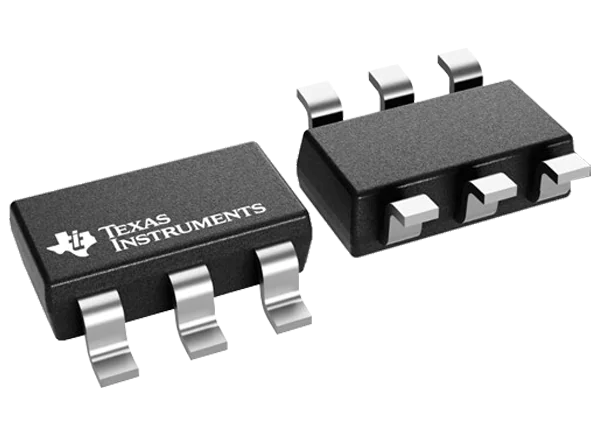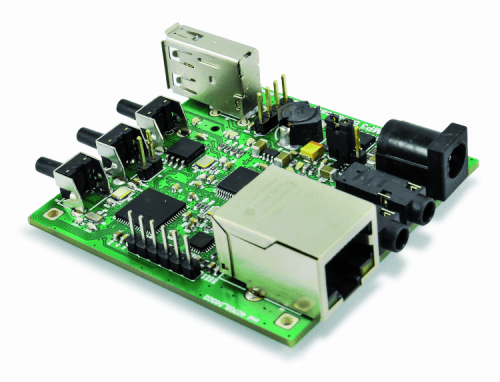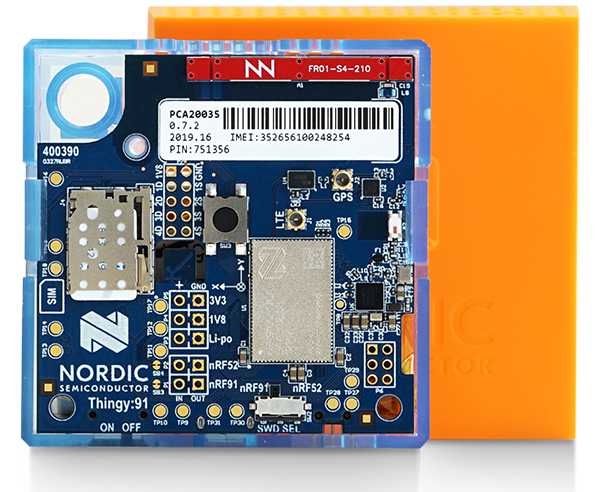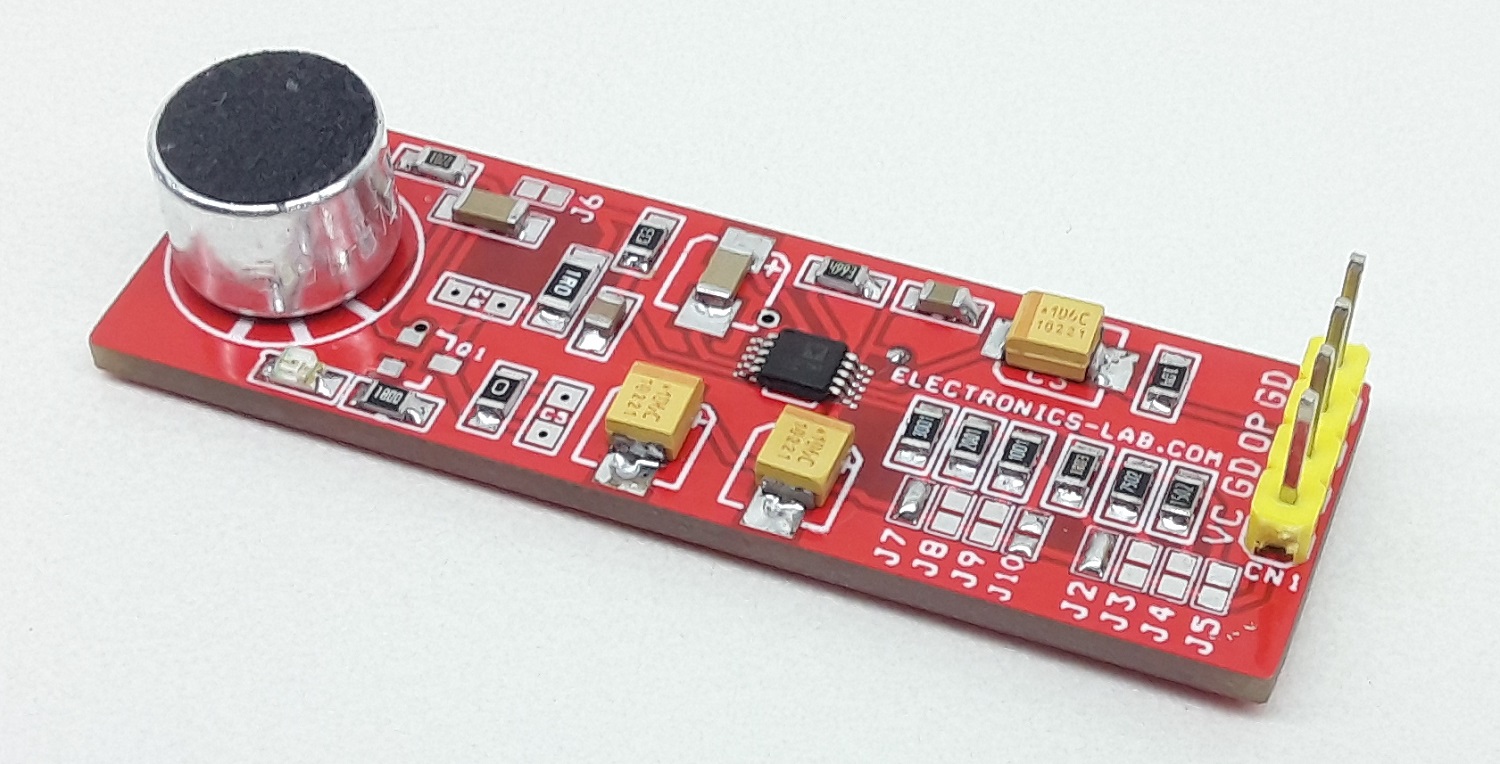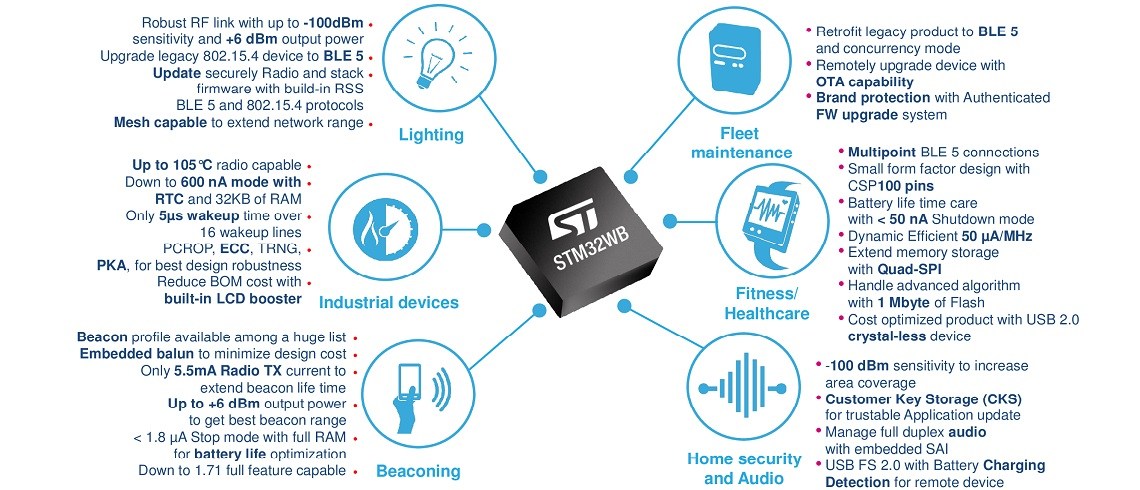
STMicroelectronics Introduces STM32WB – A SoC With 32bit Microcontroller And Bluetooth Low Energy 5
The new STM32WB from STMicroelectronics is a new wireless supporting System on a chip (SoC) that comes with a fully-featured ARM Cortex-M4 (@ 64 MHz) based microcontroller to run the main computing processes. It also has an ARM Cortex-M0+ core (@ 32 MHz) to offload the main processor and offer real-time operation on the Bluetooth Low Energy (BLE) 5 and IEEE 802.15.4 radio. The SoC can also run other wireless protocols as OpenThread, ZigBee® or other proprietary protocols. It opens many more options for connecting devices to the Internet of Things (IoT).
The Cortex-M4 combined with a Cortex-M0+ for network processing makes sure the STM32WB to be the latest ultra-low-power microcontroller to combine superior RF performance with longer battery life. The SoC also combines essential circuitry for connecting to the antenna. It also packs right amount user and system memory, hardware encryption, and customer-key storage for brand and IP protection.
These days, only a few manufacturers offer similar dual-processor wireless chips capable of managing the user application and the radio separately for maximum performance. Alternative chips typically utilize entry-level ARM Cortex-M industry-standard cores, which introduce technical limitations and very low amount of onboard flash memory.
The robust and low-power 2.4GHz radio consumes only 5.5mA in transmit mode of this new STM32WB and as little as 3.8mA when receiving. This device also include STM32 digital and analog peripherals that are engineered for low power consumption and complex functionalities, including timers, ultra-low-power comparators, 12/16-bit SAR ADC, a capacitive touch controller, LCD controller, and industry-standard connectivity including crystal-less USB 2.0 FS, I2C, SPI, SAI audio interface, and a Quad-SPI supporting execution in place.
STM32WB devices will be available in an array of 48-pin UQFN, 68-pin VQFN, or 100-pin WLCSP with up to 72 general-purpose I/Os (GPIO). Each can be specified with any of three memory configurations, giving a choice of 256KB Flash and 128KB RAM, 512KB-Flash/256KB-RAM, or 1MB-Flash/256KB-RAM.
More information is available at the official website.





